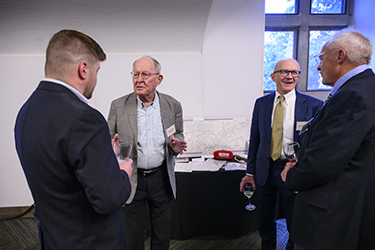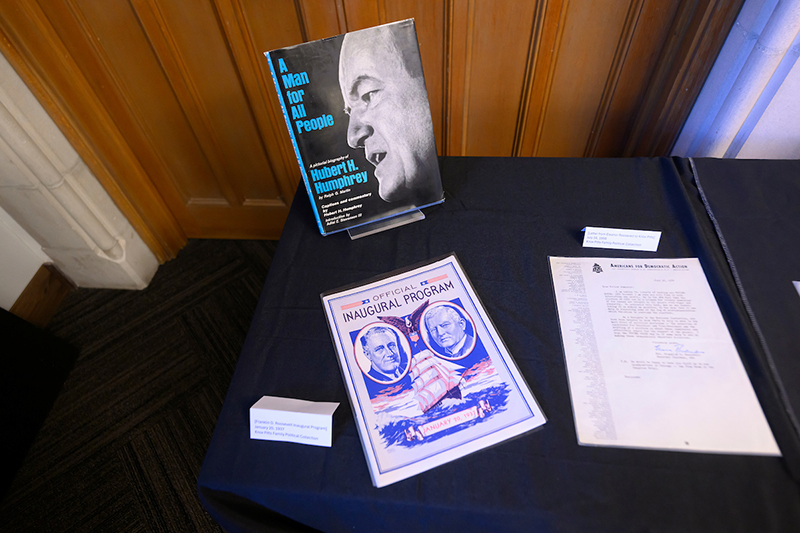
(John Amis/Vanderbilt)
Some seven decades of Tennessee and U.S. political history are commemorated in a collection recently acquired by the Jean and Alexander Heard Libraries. The Pitts Family Political Papers include a treasure trove of correspondence and memorabilia featuring some of the most prominent political figures of the 20th and 21st centuries and celebrate one Middle Tennessee family’s enduring contributions to civic life.
The collection was formally dedicated at Vanderbilt’s Special Collections and University Archives on Oct. 23 with a reception attended by Pitts family members and friends, national and local political leaders, and university administrators and staff.
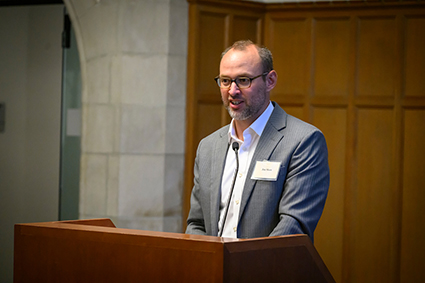
“At Vanderbilt, we are assembling one of the most significant political history collections in the country, and the Pitts Family Political Papers are helping augment this effort in a very important way,” University Librarian Jon Shaw said. “The collection is of immeasurable value, not only in the context of Tennessee politics but from a research and student engagement perspective. My thanks to the Pitts family for thinking of us for this collection and for allowing the Heard Libraries to make it available to the world.”
The Pitts Family Political Papers comprise materials dating from the 1940s to the 2000s. Highlights include correspondence with national figures such as Eleanor Roosevelt, John F. Kennedy, Robert F. Kennedy, Adlai Stevenson, Lyndon B. Johnson, Hubert Humphrey, Jimmy Carter and Bill Clinton. Correspondence with Tennessee political leaders, including Al Gore Sr., Al Gore Jr., Estes Kefauver, Joe L. Evins, BA’33, and Jim Sasser, BA’59, is also part of the collection.
The papers feature a host of items from the national Democratic Party, including materials from presidential campaigns, conventions and the Democratic National Committee, as well as invitations and programs from the presidential inaugurations of Franklin Roosevelt in 1937, Kennedy in 1961, Johnson in 1965, Carter in 1977, Clinton in 1993 and 1997, and Barack Obama in 2009. Items regarding Tennessee politicians, such as Buford Ellington, Frank Clement, Bob Clement, Phil Bredesen and Jim Cooper, are also included in the collection.
(John Amis/Vanderbilt)
The Pitts Family Political Papers memorialize the political work and relationships forged by Knox Pitts Jr. (1916–1988), a Shelbyville, Tennessee, business leader who served as chairman of the Bedford County Democratic Party for two decades, and Knox Pitts III, BA’68 (1946–2024). The latter worked as an associate director for the Democratic National Committee from 1973 to 1974, on Jimmy Carter’s presidential campaign in 1975, served as political director for Jim Sasser’s winning U.S. Senate campaign in 1976, and contributed to Jim Cooper’s successful run for Congress in 1982. He also attended every Democratic National Convention—beginning as a 10-year-old with his father in 1956—through 2016.
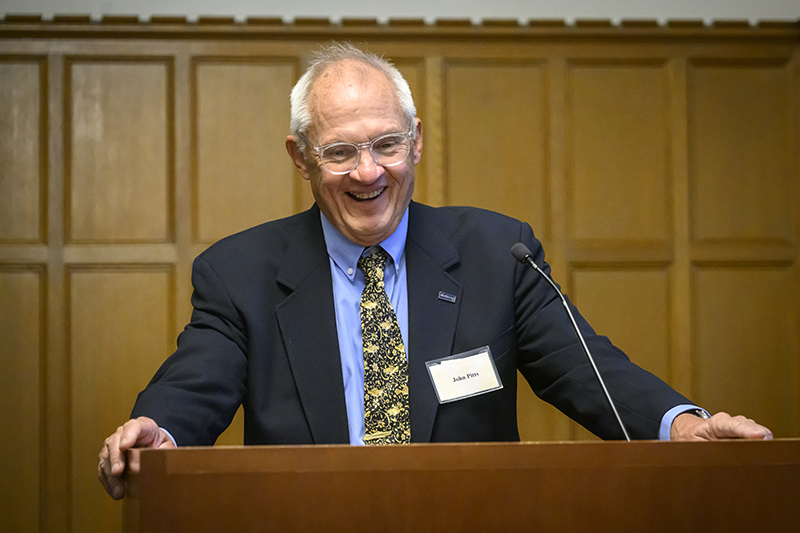
At the Oct. 23 gathering, John Steele Pitts, BA’76, reminisced and shared stories about his family’s longtime political advocacy and long association with Vanderbilt University. He noted that his mother, Mildred Steele Pitts, BA’35, was an equal partner in her husband’s political and professional life. Pitts also expressed gratitude to his partner, Joy Wedekind Hunter, BS’78, MLS’79, as well as to Connie Vinita Dowell, MLS’79, dean emerita of the Heard Libraries, for organizing the family’s collection and bringing it to Vanderbilt.
The true value of collections like the Pitts Family Political Papers is that they paint a fuller picture of American political life, said Gray Sasser, JD’98, whose father served three terms in the U.S. Senate and as U.S. ambassador to China from 1996 to 1999.
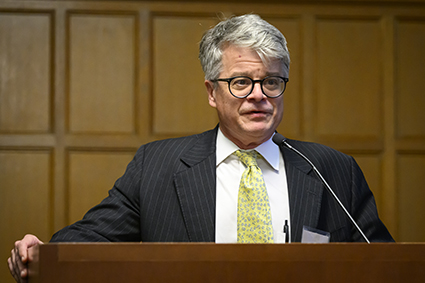
“There’s so much more to Southern and Tennessee politics than the people whose names are on the ballot,” Sasser said. “Just about everything the Sasser family knew about politics they learned from Knox Pitts. It’s people like Knox and John and so many of us in this room who work hard on campaigns. That’s the story, and I hope what Vanderbilt students take away from this collection is that you can be involved in politics and government and have an amazing, fulfilling career outside of putting your name on a ballot.”
The Pitts Family Political Papers join other distinctive Vanderbilt collections, such as the James R. Sasser Papers and the Lamar Alexander Papers, that the Heard Libraries have committed to making available to wider audiences. “The folks at Vanderbilt very diligently go through these items, digitize them, preserve them, and kindly let us, as a family, know what we can simply let go of—and that’s a gift in itself,” Sasser said.
There is nothing more powerful than teaching students about history, having them read about historical figures, then letting them interact with historical texts. “It allows them to touch the same shared history,” Shaw said.
“These collections are a portal to understanding the political evolution of Tennessee and the broader national landscape. They give us and future generations a way to explore the pivotal movements and key figures who shaped the society in which we live and the society we’re becoming,” he said. “The Heard Libraries are honored to preserve and share these materials. They provide unparalleled opportunities for research, education and discovery as we continue to be at the vanguard of making these resources available to the world.”
